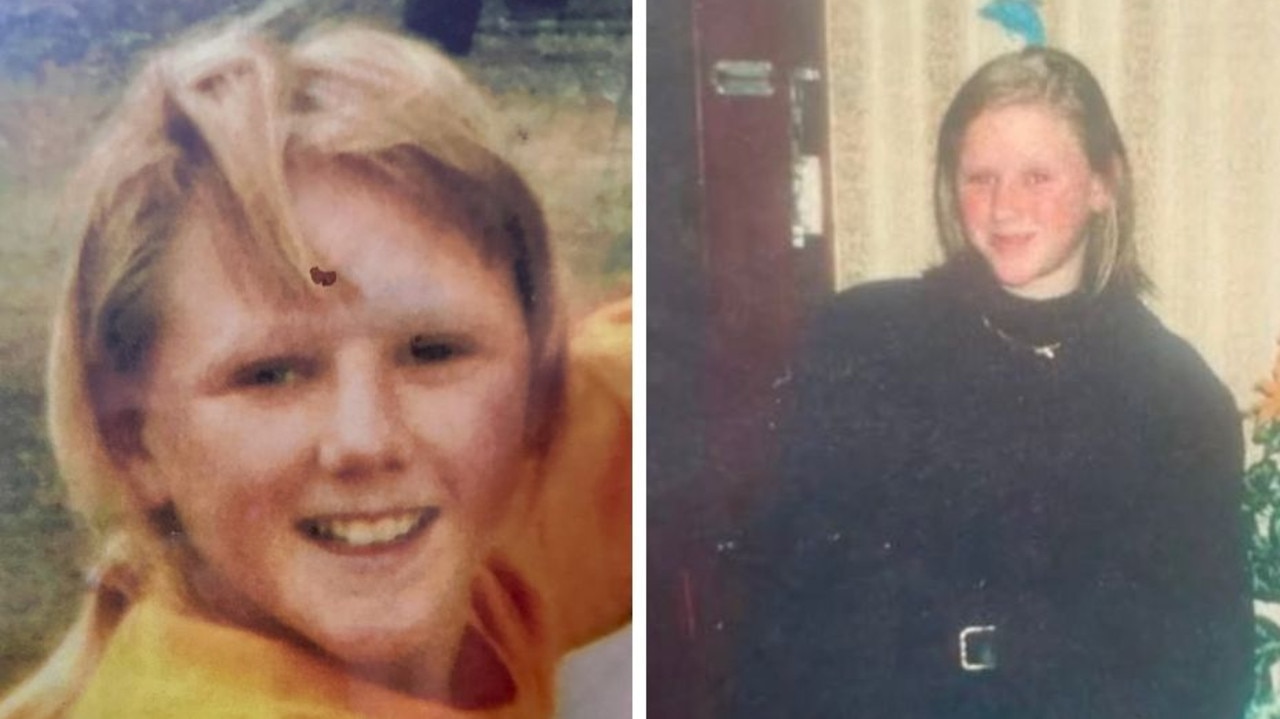Liberal candidate Tim Wilson eyes frontbench after narrow Goldstein victory
As the Coalition’s chaos continues after its shock split, Tim Wilson has set his sights on a frontbench role after reclaiming Goldstein.
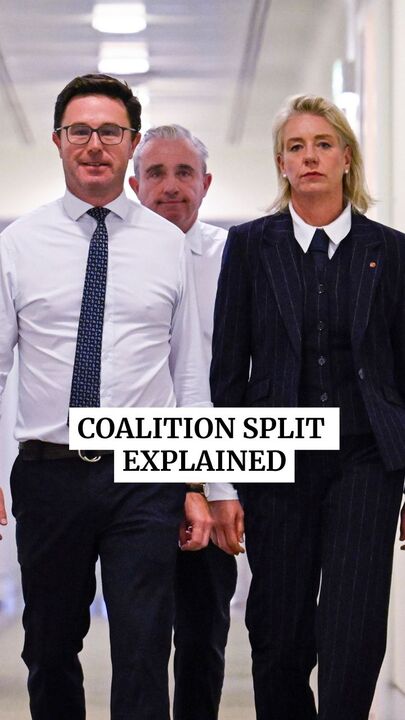
National
Don't miss out on the headlines from National. Followed categories will be added to My News.
Incoming Liberal MP for Goldstein, Tim Wilson, has made his pitch for a spot on Sussan Ley’s frontbench.
Mr Wilson - who defeated Teal MP Zoe Daniel with a 131 vote lead at the end of counting on Tuesday - said he’d built the winning campaign after listening to the community following his 2022 election loss.
He said he was expecting to have a chat with the Opposition leader about what role he could play in holding the Albanese government to account.
“I’ve made it unambiguous - I am interested in standing up for small business. I am interested in standing up against Labor’s family savings tax on unrealized capital gains,” Mr Wilson told Sky News.
“I am making sure ... that economics must be the thrust and focus of this opposition and there are lots of other topics I’m interested in.
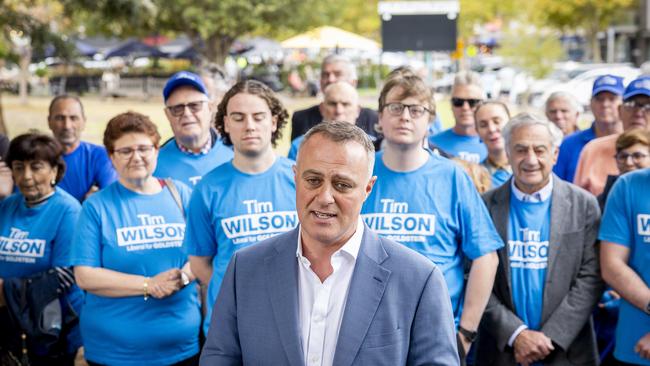
“I’m raring to go. I’ve spent three years on the benches, and nobody would say anything other than I’m keen to throw my enthusiasm and energy into this next term of parliament.”
He said the Coalition split was an “exciting opportunity” for the Liberal Party to find its “mojo juice again” so it can represent the capital cities.
It comes as the Nationals’ split from the Liberals sent shockwaves through the party room as MPs warned of “disastrous” consequences, while others are celebrating their new-found freedom.
Nationals leader David Littleproud on Tuesday announced his party would “sit alone” in the parliament rather than join a formal coalition with the Liberals for only the third time in almost 80 years.
Liberal leader Sussan Ley said it was “disappointing” coalition agreement talks with Mr Littleproud had broken down, but insisted the Nationals’ demands were untenable.
Both leaders claimed their doors remained “open” to the other should a future deal be possible, but until then the Liberals and Nationals will develop policies and operate entirely separately in parliament.
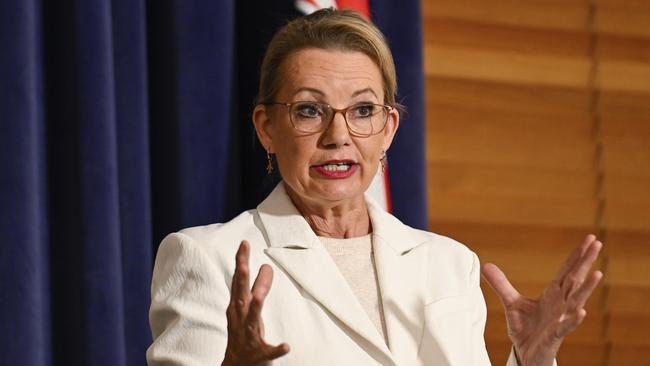
One Liberal said they didn’t see the break up as “unhealthy,” arguing the Nationals had been a “drag” on the Coalition’s vote in the cities.
“I think to be honest this will help us in metropolitan areas,” they said.
“There were people in the last two elections who would have liked to vote Liberal, but could not stomach the out-sized influence and stranglehold the Nationals appeared to have over policy.”
But several MPs feared any short-term positives would be outweighed by the “waste of resources” if the Liberals and Nationals were competing up to and at the 2028 election.
“It would be disastrous,” one Liberal said.
Mr Littleproud blamed the breakdown on the Liberals’ unwillingness to lock in four key policies as part of a new coalition agreement — nuclear energy, divestiture powers to break up the big supermarkets, a $20 billion regional fund and guarantees around mobile coverage in rural areas.
He said the decision to break from the Liberals was made on a “principle basis”.
“On the basis of looking forward, not having to look back, and to try and actually regain important policy pieces that change the lives of the people we represent,” he said.
Mr Littleproud said post-election defeat the Liberals were “going on a journey of rediscovery” and the separation would allow them to do that “without the spectre of the National Party imposing their will”.
But Ms Ley said the issue was not the specific policies, but the Nationals’ failure to respect her pledge that no policies would be “adopted” or “abandoned” without a proper post-election review process.
The Nationals also wouldn’t commit to “shadow cabinet solidarity,” instead wanting their senior frontbench members to be free to vote against settled Coalition policies.
Ms Ley said solidarity was “very important” and she could not take any further steps in coalition talks without the Nationals’ support for the policy.
One Liberal said they were “certain” the Nationals’ attempt to avoid solidarity was so they could vote against net zero in the future.
“That would have done us immense damage, we could never have accepted that,” they said.
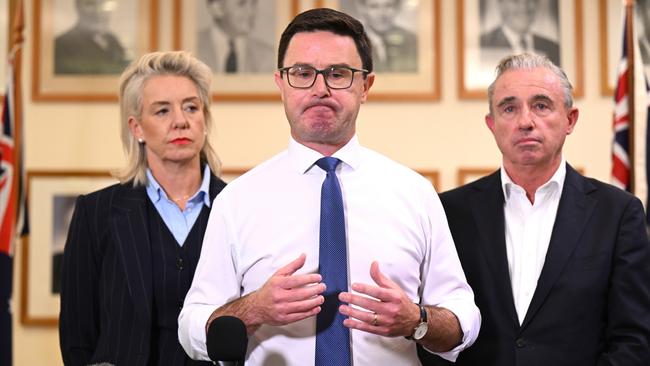
Ms Ley said the Liberals, as the largest non-government party in the parliament, would form the “official opposition” to Labor, and a new shadow ministry would be announced “in the upcoming days”.
“I have enormous talent in the Liberal Party room and the shadow ministers that I appoint … will be well equipped and incredibly capable to take the fight up to Labor, right up until the next election,” she said.
Ms Ley called an emergency meeting with her Liberal colleagues on Tuesday afternoon to discuss the split, where she was asked what would happen to Liberals with senior roles if the Nationals came back into the Coalition.
According to one MP, Ms Ley effectively confirmed positions would return to the Nationals, but speaking publicly later she said those discussions would be had “as and when needed”.
The split means Liberals and Nationals will now operate as separate entities, no longer sharing policies or Question Time tactics, nor voting as a bloc.
The Nationals’ breakaway leaves Ms Ley with 15 fewer votes in the lower house.
But when asked about how the split would impact the parties’ ability to stand up to Labor, Mr Littleproud said the Liberals and Nationals combined didn’t have the numbers to be able to block the Albanese Government anyway.
Mr Littleproud said he was hopeful a new Coalition agreement would be reached before the 2028 election.
Ms Ley echoed this, adding it could be the case a deal is made for what would happen after the election in the event Labor was knocked out of government.
The two parties last went their separate ways in 1987 when then-Queensland National Party premier Joh Bjelke-Petersen ran a campaign “Joh for Canberra” in an attempt to become prime minister.
The last time the Liberals won enough seats to govern in their own right was in 1996, but then-leader John Howard opted to continue with the Coalition agreement rather than jettison the Nationals from his cabinet.
Ms Ley said at the time Mr Howard took a “strong and principled approach that the Coalition mattered in the long term” and that was “exactly the approach” she would take.
More Coverage
Originally published as Liberal candidate Tim Wilson eyes frontbench after narrow Goldstein victory




